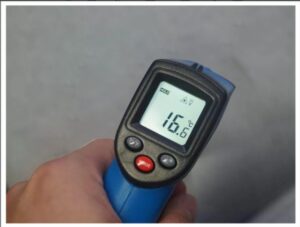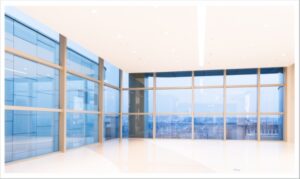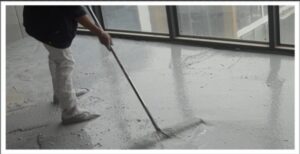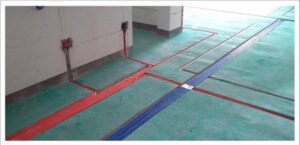Adequate construction conditions are critical to ensuring the smooth execution of gypsum self-leveling construction, thereby guaranteeing construction quality and results. Considering regional differences between northern and southern areas as well as temperature variations, the following conditions must be met to achieve high-quality gypsum-based self-leveling construction.
1.Construction Temperature (Indoor Temperature , Ambient Temperature):
The optimal temperature for the floor and environment during the construction and curing of gypsum-based self-leveling floors is between 5℃ and 35℃, with relative humidity not exceeding 80%. Under low-temperature conditions, the polymer additive used in gypsum-based self-leveling cannot dissolve properly; the dissolution rate decreases, theadditive’s performance deteriorates, making it difficult to ensure the various properties of gypsum self-leveling. Under high-temperature conditions, during construction, the slurry moisture is rapidly absorbed by the base layer. Or volatilize into the air, shortening the operable time of the self-leveling mortar, reducing fluidity, decreasing levelingaccuracy, and simultaneously, due to excessive water loss, increasing the risk of plastic cracking in the self-leveling.

2.Environmental Ventilation Conditions:
Besides temperature, gypsum-based self-leveling is also affected by strong wind interference during the setting process. This factor is especially pronounced in summer and on high floors. Strong wind during construction causes excessive water loss in the self-leveling mortar, leading to plastic cracking during setting and poor surface appearance (such as water marks). There_x0002_fore, the impact of wind on material setting must not be overlooked. Doors and windows should be kept closed during application, and ventilation should only be introduced after the material has fullyset and stabilized to accelerate floor dehydration.

3.Strictly Prohibit Cross Construction:
During the construction of the sound insulation layer, cross construction is strictly prohibited. Cross construction is extremely detrimental to our sound insulation system. Repeated trampling and ladder use will damage the sound insulation layer. Surface debris and dust are difficult to manageand cause significant difficulties for the subsequent interface treatment process. This directly affects the quality of the self-leveling product and the appearance of the surface layer. A proper construction environment must ensure conditions free of cross construction.

4.Stable Water and Electricity Supply:
Due to the characteristic of gypsum-based self-leveling material exhibiting rapid hardening and early strength—both an advantage and a disadvantage—to avoid issues such as difficult handling at equipment junctions, a stable and uninterrupted supply of water and electricity is essen_x0002_tial to ensure continuous operation and achieve high-quality floor construction.

